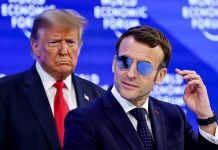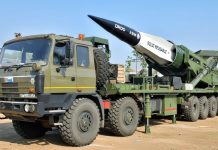The US State Department has recognized Iran’s Chabahar Port, co-developed by India as another important gateway to Afghanistan. For the ongoing project in Chabahar Port, US President Donald Trump’s waiver to India has come as a big relief. This waiver is in addition to the six-month relief from sanctions on the import of Iranian oil.
- No US Sanctions on India for Buying Iranian Oil: Indian Media
- India Stuns Trump Administration; Will Continue To Buy Iranian Oil
Despite the Trump administration being very restrictive in giving exemptions, this latest waiver to India is seen as a recognition by Washington of New Delhi’s major role in the development of the port on the Gulf of Oman. This is of immense strategic importance for the reconstruction of war-torn Afghanistan.
The latest and toughest ever sanctions on a defiant Iran is aimed at altering the Islamic Republic’s behaviour. “The sanctions cover Iran’s banking and energy sectors and reinstate penalties for countries and companies in Europe, Asia and elsewhere that do not halt Iranian oil imports.”
Experts have applauded Trump’s decision. “Trump administration made the right move by exempting India for the development of the Chabahar port. Jeff Smith of the Heritage Foundation said “India made a convincing case that its principal interest in the port was to develop alternative infrastructure links to Afghanistan that bypass Pakistan, which also serves as the US national security interests. Combined with the importance of on developing good ties with India, there was a compelling geopolitical case to be made for a waiver.”
More than a Waiver
But this is surely more than just a waiver. India, since 2008 has signed up for over a $15 billion in arms with the United States for the C-17 Globemaster and C-130J transport planes, P-8I maritime reconnaissance aircraft, M777 howitzers, Harpoon missiles and Apache and Chinook helicopters. India is also set to request for Sea Guardian drones.
Moreover, US contractors Lockheed Martin and Boeing are vying for a number of high-profile arms deals, including 110 fighter planes for the Indian Air Force, 57 multi-role carrier-borne fighters for the Indian Navy and 234 naval utility and multi-role helicopters.
This will no doubt be a huge economic boost for the US, thus Washington not wanting to complicate ties with India. The underlying US ‘India Policy’ norm is that New Delhi reduces its dependence on Iran for oil imports and Russia on defence imports, and replace them with Saudi Arabia and the United States.




